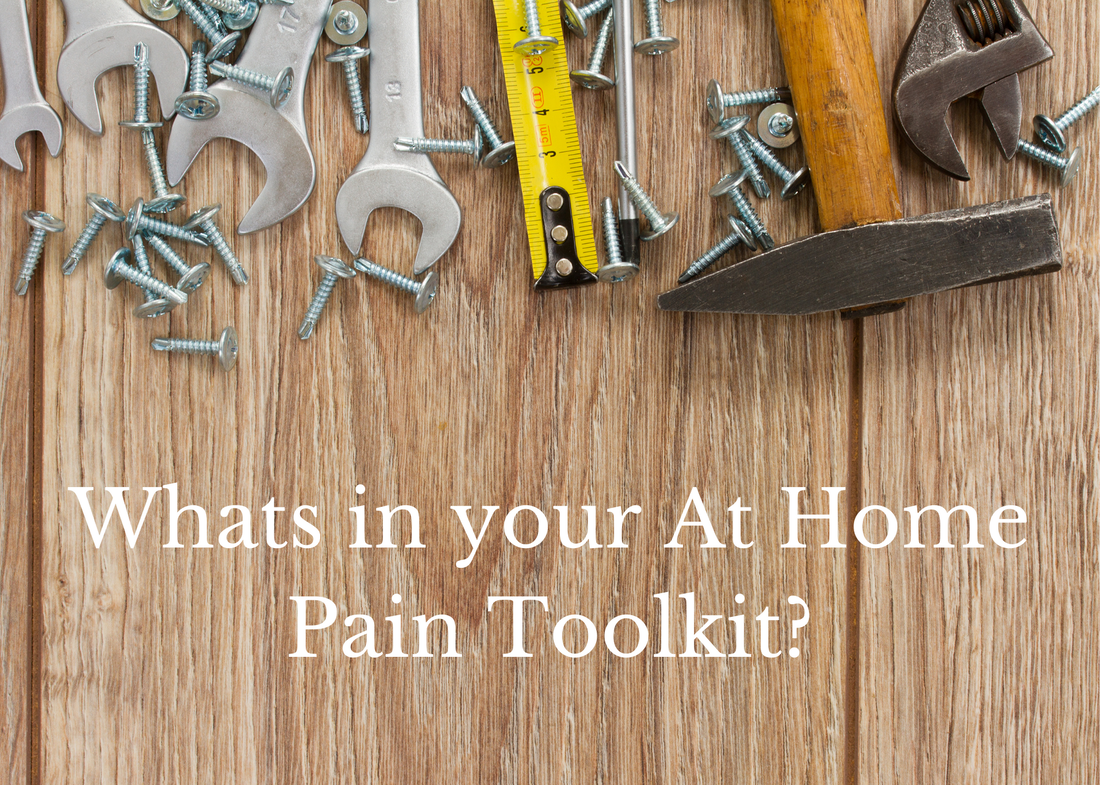|
When you have chronic pain, you get very familiar with pain that makes itself known every day. You may have some good days and some bad days, but either way its good to have a toolkit of things you can do at home to help reduce, manage or avoid pain flare ups. This is even more important now, while Melbourne is under Stage 4 Restrictions in response to COVID19 and seeing your Myotherapist is no longer an option. Your toolkit will likely be different to someone elses, but these are some of the things that you can incorporate at home to help keep pain as low as possible.
Gentle movement - Walking, yoga, pilates, dancing, cycling, and other low impact exercises to keep your joints and muscles mobile. What you can achieve may change day by day, work within your own limits. There are plenty of free or affordable online options, my favourite that I'm personally using throughout lockdown is Erica Webb Yoga & Pilates virtual studio ($37 a month for unlimited classes) Stretching - Make time to stretch each day, especially the muscles that feel tightest. If you're working from home, its really easy to get stuck sitting for hours at your desk - or couch, coffee table, hammock, whatever your work from home set up looks like. Self care tools - Foam rollers, tennis balls and spiky balls, acupressure mats, TENS machines: these can all help reduce muscle pain and tension. Don't have one? You can pick these up cheap online on eBay or through sports stores. Hot or cold therapy - Heat packs, hot water bottles, electric blankets to keep you warm and take away some of the ache. Ice packs or cool compresses can work better for acute inflammation areas or for numbing persistent pain. Nutrition and hydration - Eat well, drink water, and avoid foods that tend to flare up your pain. Pre-plan meals and snacks so you can have some easy to grab options on bad pain days where you don't have the energy to cook (or clean!) Stress management - Easier said than done during a pandemic, right? Find things that bring down your stress levels, that will be different for each person, but some classics include reading, listening to music, taking a nap, having a warm soak in epsom salts, booking a telehealth appointment with a counsellor, writing in a journal. Seek support - Don't suffer alone! Reach out for a conversation with your friends, family, coworkers, neighbours. Don't forget there are plenty of services to support you, including talking with your GP, a counsellor, and support groups online. Pain relief - I know a lot of our patients choose not to use pain relievers, but in these times where its hard to get access to hands on treatments that help, you may find that taking pain relief is helpful. This may include prescribed medications from your GP or over the counter recommendations from your pharmacist. Gels and creams - There are a heap of options for topical pain creams, the most commonly used ones include Deep Heat, Fisiocrem, and Voltaren. My personal favourite is a non-pharmaceutical blend by Doterra called Ice Blue Rub, its got a cooling menthol effect that is fairly long lasting, but it is on the pricey side for a cream. A little goes a long way! Sleep - What can you do to optimise your sleep cycle? A well rested body has the best opportunities to repair and recover. Some things to experiment with are an earlier bed time, switching off screens well before bed, changing your pillow, listening to relaxing music. We hope it won't be long now until we're able to offer hands on treatments again. As soon as we know more, we'll make an announcement and get our online booking page active again. Comments are closed.
|
Meet Our Team
We have a team of great practitioners available 7 days a week at our Rowville clinic. Archives
July 2024
Categories
All
|
Got a question about Myotherapy?
Contact Mel by phone, email or Facebook
|
Simple Wellness Myotherapy & Remedial Massage Clinic
Shop 12B 150 Kelletts Rd Rowville VIC 3178 |
Phone us on
03 8204 0970 |


 RSS Feed
RSS Feed